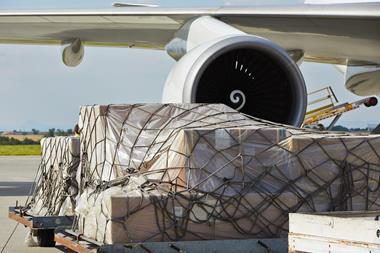UK businesses are already passing on to consumers increased supply chain costs due to challenges posed by the country’s exit from the European Union (EU), known as Brexit.
New research, The Brexit Storm, from the Chartered Institute of Procurement and Supply (CIPS) indicates that nearly a third (32%) of UK businesses with EU suppliers have already increased their prices as a result of the June 2016 referendum vote to leave the EU.
A possible no deal ‘hard Brexit’ from March 2019 has already seen one in seven (14%) of EU businesses with UK suppliers moving parts of their business out of the UK.
Meanwhile, two-fifths (41%) of those surveyed by CIPS plan to increase their prices, in order to offset the potential costs of Brexit.
However, there is some good news for UK exporters, with just 8% of supply chain managers from outside the EU taking the view that British products fail to ‘stand out from the crowd’, implying that UK businesses could benefit by targeting non-EU markets.
But closer to home, some 42% of EU supply chain managers took the view that British products do not ‘stand out from the crowd’.
And almost a quarter (23%) of UK businesses said they plan to reduce the size of their workforce to offset Brexit-related costs, potentially leading to an increase in UK unemployment.
Additionally, more than one in 10 (11%) of EU companies have moved some of their workforce out of the UK since the Brexit vote.
The CIPS research is the third in a series of surveys which have tracked the impact of Brexit on supply chains since May 2017.
This research is the output of a survey of 2,204 supply chain managers* - the professionals responsible for negotiating with the UK’s suppliers and clients at home and abroad.
CIPS said that the “confluence of price increases in the supply chain and a lack of new contracts coming from the EU, is causing UK businesses to look elsewhere in order to stay afloat”.
With still one year to go until the UK’s departure from the EU, 9% of UK businesses with EU suppliers have already lost or had contracts cancelled as a direct result of Brexit.
“Even more concerning,” said the CIPS report, is the admission that almost a quarter (22%) of UK businesses with EU suppliers are having difficulty securing contracts which run after March 2019.
It added: “These numbers raise fears of an imminent collapse in the UK’s supply chain following Brexit, unless negotiators can give businesses on both side of the channel greater clarity around what the future trading relationship between the UK and EU will look like.”
John Glen, economist at the CIPS, said: “Businesses have little choice but to pass on some of their rising costs to consumers in order to protect their profit margins and stay in business, as a result of the crippling cost of Brexit. “However, businesses are still taking the brunt of the impact as there is a limit to what they can pass on to consumers at a time of stagnant wage growth, and rising inflation.”
Glen continued: “Businesses are now looking elsewhere to try and recuperate the money they are losing as a result of Brexit. To achieve this, many are also looking to switch suppliers, but they’re likely to have difficulty finding suitable alternatives in the UK.
“It is therefore crucial they don’t burn their bridges with their EU contacts but instead work to build stronger relationships with European partners. Businesses should also consider other ways through which they can improve the efficiency of their supply chain, such as by embracing new technologies and automating processes.
“In the end, businesses that fail to plan ahead and use this opportunity to reduce costs in their supply chain may not survive post-Brexit.”
A CIPS spokesperson said that the institute is neutral on the Brexit issue and that its survey reflects supply chain concerns.
Read moreBrexitnews
Sign up to receive Air Cargo News direct to your inbox for free










